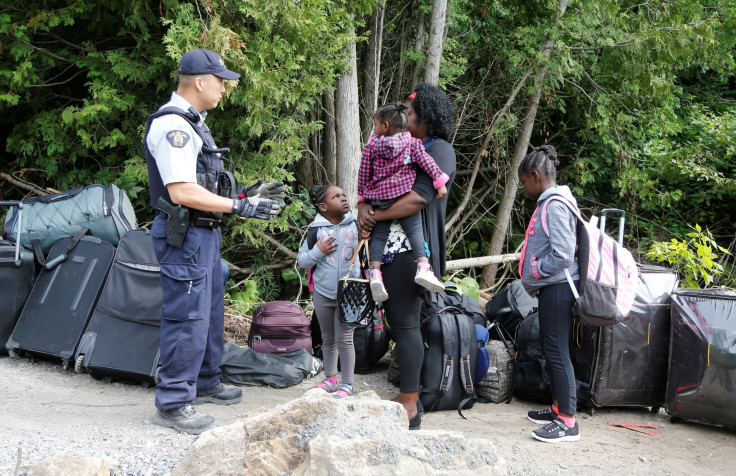As Trump Ends TPS For Haitians, Where Do They Go Next?

With the Trump administration announcing Monday night that the Temporary Protection Service (TPS) for about 50,000 Haitians in the United States will expire by July 2019, they are not left with a lot of options.
TPS was offered to people who have been displaced from their countries due to internal conflict, natural disasters or such dangerous reasons. The Haitians were fortunate enough to be in the United States when a massive earthquake struck their island nation in 2010, killing more than 200,000 people and displacing about 1.5 million. The U.S., on a humanitarian basis, offered TPS to them as Haiti was little more than rubble after the earthquake.
Haiti officials have been clear they would not be able to accommodate 50,000 people who will need jobs, shelter and other basic requirements, Vox reported. Apart from this, the end of TPS would also mean the loss of about a billion dollars in remittances the Haitians send home.
According to the Center for Migration Studies, these Haitians have about 27,000 U.S.-born children, a group President Donald Trump and his government did not account for. Their parents might have to take these children to a country unknown to them or leave them in the U.S. to be taken care of by some stranger.
The administration said in May that Haitians should get their affairs in place as their TPS would be extended only for six more months. This had led to people crossing illegally into Canada, the Toronto Star reported, adding that it rose to more than 200 people a day.
Hursh Jaswal, spokesperson for Canada’s Immigration Minister Ahmed Hussen, said Canada remained an "open and welcoming country to people seeking refuge," but added they must do so "through the proper channel," according to the Toronto Star. "There are rigorous rules to be followed and the same robust assessment process applies. Those who are determined to be genuinely at risk, are welcomed. Those who are determined not to be in need of Canada’s protection, are removed."
Liberal MP Emmanuel Dubourg said the message that Canada isn’t a default option should be sent out. He added a large number of people started hoping for asylum after a recent announcement said Canada will accept about one million immigrants in three years. This, according to Dubourg, was misconstrued to mean Canada will welcome one million immigrants this year, Canadian newspaper the National Post reported.
The final option Haitians have is to stay in the U.S. as unauthorized immigrants, as the Immigration and Customs Enforcement will take time to arrest and deport them, Vox reported.
The government announced Monday the TPS for Haitians will expire in 18 months, after which they will be deported. The decision was made as the administration believes the island nation has sufficiently recovered from the disasters, which include the earthquake, a cholera epidemic and hurricane Matthew that struck the island a little over a year ago. Advocates for the Haitians said conditions have barely improved. PBS reported, in Haiti more than 2.5 million people, which is about a quarter of their population, live on less than $1.23 a day.
Democratic National Committee Chair Tom Perez, criticized Trump's decision by saying in a statement, "Donald Trump’s cruelty knows no bounds. ... Protecting these hardworking people is the right thing to do for our economy and our country."
.@TomPerez on Trump's decision to end Haiti's TPS: pic.twitter.com/7bSXuhDZzb
— DNC War Room (@DNCWarRoom) November 21, 2017
Sen. Kirsten Gillibrand also slammed the decision.
This decision puts tens of thousands of Haitian families, who make important contributions to our communities, in harm’s way. What an astounding lack of compassion. https://t.co/h7bbAiRkVb
— Kirsten Gillibrand (@SenGillibrand) November 21, 2017
The decision comes in spite of Congress members who represent South Florida, where most Haitians live, were for extending their status. Representative Ileana Ros-Lehtinen, a Republican from Miami, proposed a legislation that would ultimately allow these immigrants to apply for permanent residency, the New York Times reported.
© Copyright IBTimes 2024. All rights reserved.











